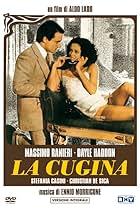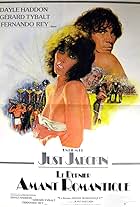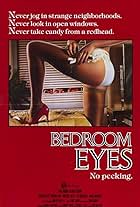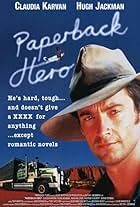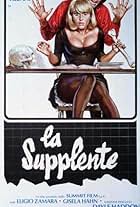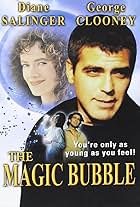A hockey player in a small town begins to lose his grip on reality, and starts to believe that he is a gunslinger in the Old West.A hockey player in a small town begins to lose his grip on reality, and starts to believe that he is a gunslinger in the Old West.A hockey player in a small town begins to lose his grip on reality, and starts to believe that he is a gunslinger in the Old West.
- Awards
- 3 wins total
George R. Robertson
- Burdock
- (as George Robertson)
Linda Sorensen
- Mona
- (as Linda Sorenson)
- Director
- Writers
- All cast & crew
- Production, box office & more at IMDbPro
Storyline
Did you know
- TriviaTo help Keir Dullea and Elizabeth Ashley feel comfortable in the shower scene, where they both appear naked, director Peter Pearson took off his clothes as well, and climbed into the shower with them.
- SoundtracksIf You Could Read My Mind
Written and performed by Gordon Lightfoot
Featured review
"Your head is full of little dingle balls..." This comment (a quote from the film) is probably the most apt description of Rick Dillon, the notorious star player of the Delisle senior hockey team and womanizing key figure in the 1973 film "Paperback Hero".
Set in the desolate agricultural town of Delisle, Saskatchewan, the plot surrounds Dillon's fall from grace as a reigning sports god. Once living in a world where his actions had no consequences, he suddenly finds his vaulted throne caught in a whirlpool. The troubled standing of the team, his own declining popularity, as well as being wanted by the law after one of his numerous romantic conquests goes sour.
The only people who stand by the self-appointed "Marshal" Dillon (played by Keir Dullea) are his teammate "Pov" (John Beck) and good-hearted barmaid, Loretta (played by Elizabeth Ashley). They see the childlike innocence of Rick's "boy dreams", while seemingly oblivious to the dangers the fantasy begins to take.
The classic tragic figure, Rick's demise is cleverly symbolized by the desolate prairie setting, interspersed with scenes of vast wheat fields and abandoned farm implements. The pathos is further entrenched by Gordon Lightfoot's hit tune "If You Could Read My Mind", the performing of which is one of the highlights of the screenplay.
This film was one in a number of pioneering efforts to establish the Canadian film industry that we know today. While crude and clumsy at times, the film is pretty successful in its mandate of putting Canadian identity into the cinema. Little touches like "brown stubby" beer bottles, Foster Hewitt calling play-by-play on Saturday night hockey games and dilapidated old smoke-filled arenas make it clear this is mid-seventies Canada. The plot, while far from classic, is still pretty watchable. I would recommend it to Canadians, or anyone wanting to know more about Canadian popular culture. If you are looking for the Canadian equivalent of "Citizen Kane", well ... you'd be best to keep searching. I give "Paperback Hero" TWO STARS out of FIVE.
Set in the desolate agricultural town of Delisle, Saskatchewan, the plot surrounds Dillon's fall from grace as a reigning sports god. Once living in a world where his actions had no consequences, he suddenly finds his vaulted throne caught in a whirlpool. The troubled standing of the team, his own declining popularity, as well as being wanted by the law after one of his numerous romantic conquests goes sour.
The only people who stand by the self-appointed "Marshal" Dillon (played by Keir Dullea) are his teammate "Pov" (John Beck) and good-hearted barmaid, Loretta (played by Elizabeth Ashley). They see the childlike innocence of Rick's "boy dreams", while seemingly oblivious to the dangers the fantasy begins to take.
The classic tragic figure, Rick's demise is cleverly symbolized by the desolate prairie setting, interspersed with scenes of vast wheat fields and abandoned farm implements. The pathos is further entrenched by Gordon Lightfoot's hit tune "If You Could Read My Mind", the performing of which is one of the highlights of the screenplay.
This film was one in a number of pioneering efforts to establish the Canadian film industry that we know today. While crude and clumsy at times, the film is pretty successful in its mandate of putting Canadian identity into the cinema. Little touches like "brown stubby" beer bottles, Foster Hewitt calling play-by-play on Saturday night hockey games and dilapidated old smoke-filled arenas make it clear this is mid-seventies Canada. The plot, while far from classic, is still pretty watchable. I would recommend it to Canadians, or anyone wanting to know more about Canadian popular culture. If you are looking for the Canadian equivalent of "Citizen Kane", well ... you'd be best to keep searching. I give "Paperback Hero" TWO STARS out of FIVE.
- animal_8_5
- Oct 4, 2002
- Permalink
Details
Box office
- Budget
- CA$500,000 (estimated)
Contribute to this page
Suggest an edit or add missing content













